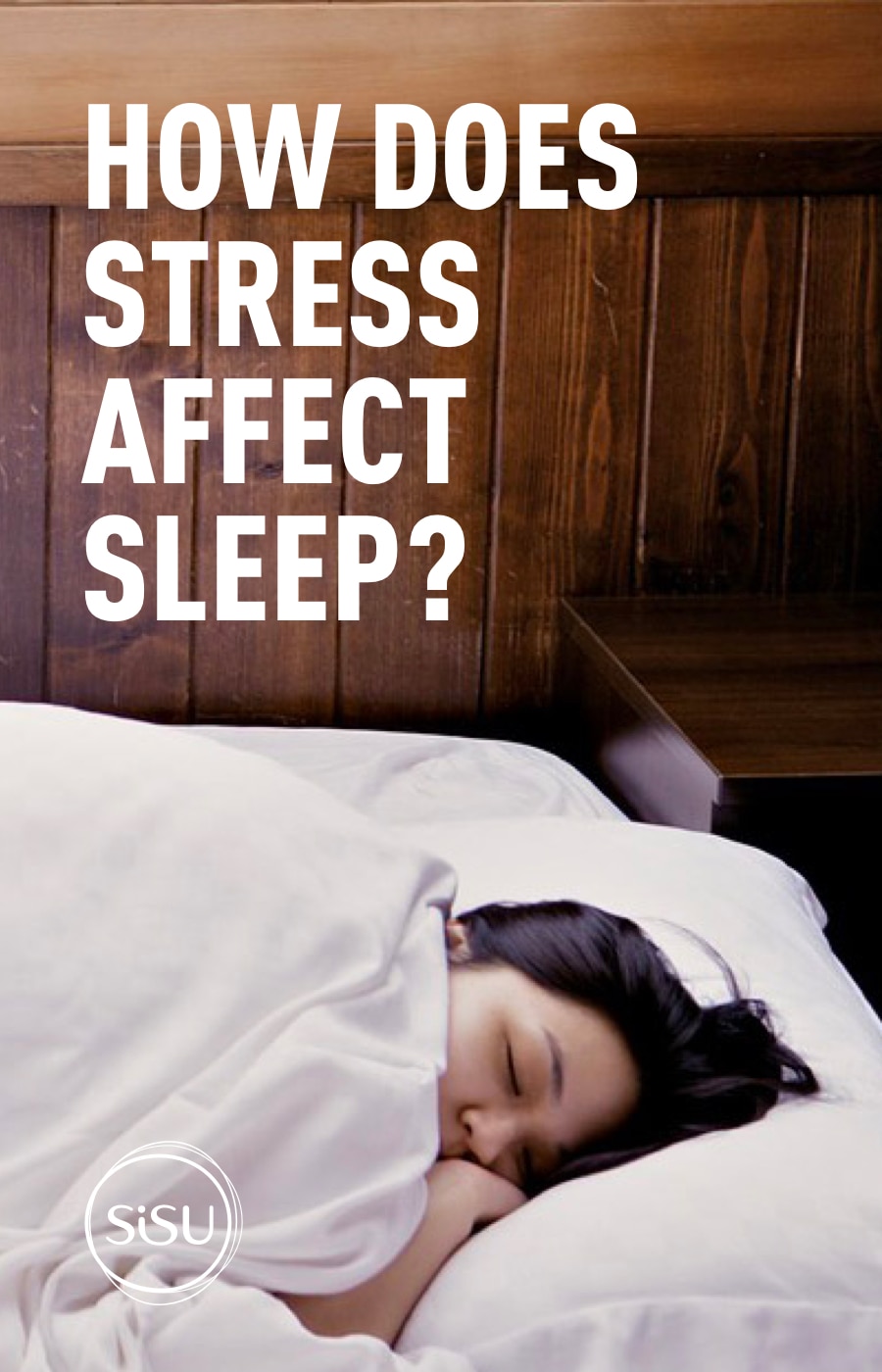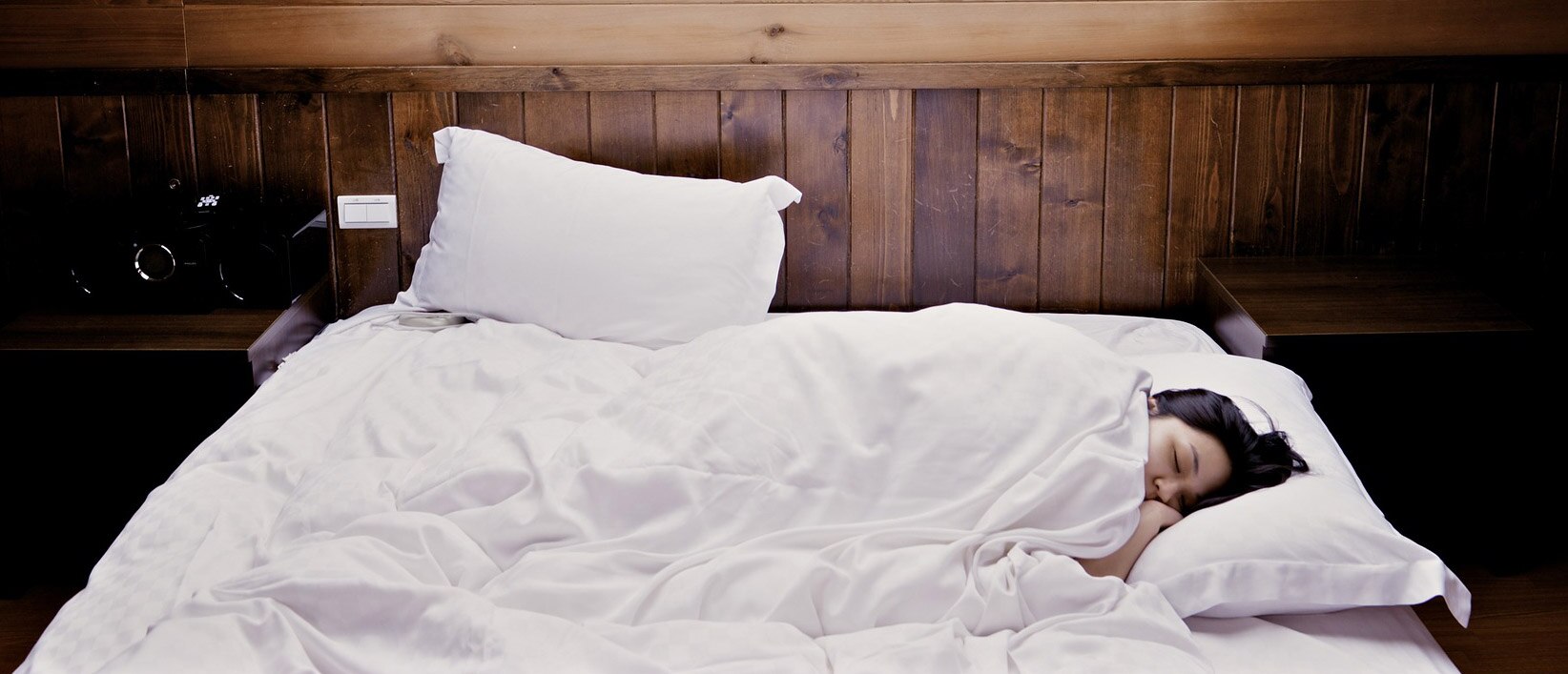
The relationship between stress and sleep
About one-third of Canadian adults aren’t getting the recommended amount of sleep.1 Stress and sleep have a unique relationship. The more stress you’re under, the more rest you need, but the harder it is for your body to rest. What a dynamic.
We’ve long been aware of the detrimental health consequences of not getting enough sleep; low mood, irritability, and cognitive health problems.2 Unfortunately, society still encourages a work-centric culture that prioritizes productivity over rest. It’s alarming, but the good news is that specific nutrients can support your body during times of stress, and actually promote a restful sleep. Imagine that, a restful sleep!
Incorporating more mindful habits and nutrient-rich foods into your daily life can help you maintain a healthy relationship with sleep, even during times of stress.
How does stress affect sleep?
Stress can increase anxiety and make it difficult to fall asleep at night.3, 4 If you’re under regular stress, this can negatively impact your circadian rhythm.5 Known as your sleep-wake cycle, the circadian rhythm is a 24-hour cycle that influences important bodily functions such as eating habits, what hormones your body releases, and your temperature.6
In short, not getting enough sleep can affect your entire wellbeing.
Stress and nutrition
It’s all connected – stress, sleep, nutrition. For example, stress is known to decrease magnesium levels.7 Just as a fast car requires more gas, a stressed-out body needs more magnesium. Without it, your body has less support during the times it needs it the most!
Nearly two-thirds of those living in the western world are not meeting the daily allowance for magnesium.8 Deficiencies in this mineral have been linked to many health problems such as anxiety, depression, migraines, and cardiovascular disease.9, 10, 11, 12
Fibrous foods generally provide adequate levels of magnesium. Legumes, nuts, seeds, whole grains, and leafy greens are rich in this calming mineral.13
Magnesium deficiency symptoms
Common symptoms of a magnesium deficiency are:14
- Irritability
- Muscular weakness
- Spontaneous muscle cramping in the hands and feet
If you’re not getting enough magnesium from food alone, consider:
- Taking a premium magnesium supplement
- Introduce more magnesium-rich foods into your diet such as legumes and leafy greens
Sisu’s Magnesium 250 mg Relax Blend helps to temporarily promote relaxation.
 Lifestyle tips for stress and sleep
Lifestyle tips for stress and sleep
While stressful situations are just a part of life, managing the way you react to stress can have major health benefits. Help your body cope with stress and sleep restfully with these tips:
- Practicing gratitude can decrease stress levels and improve one’s quality of sleep.15, 16
- Regular meditation is known to reduce stress and have mental health benefits.17 One study found that regular meditation greatly improved the quality of sleep among those with insomnia.18
- Routine exercise has been shown to support stress reduction.19 Regularly moving your body—without over exercising—is a great way to reduce overall stress and maintain a healthy, active lifestyle.
- Go screen-free for 30 to 60 minutes right before bed. Screens emit what’s known as blue light, which can trick the body into thinking it’s daytime. Studies show exposure to blue light suppresses the sleep hormone melatonin.20
- Taking a premium rhodiola rosea supplement can temporarily relieve symptoms of stress when consumed.21
Rhodiola for stress
Rhodiola rosea is an herb that grows in the mountain regions of Asia and Europe. Studies suggest taking rhodiola can help support the body’s stress responses, improve physical stamina, mental focus, and cognitive function, while providing antioxidants.22, 23, 24
Incorporate rhodiola rosea into your diet by taking a premium supplement such as Rhodiola Stress Caps. This premium rhodiola rosea supplement helps to support mental focus and helps relieve symptoms of mental fatigue related to stress. Learn more about the benefits of supplementing with rhodiola rosea.
By incorporating healthy lifestyle habits, nutrient-rich foods, and premium supplements into your everyday life, you’ll be set up for a restful sleep. Keep up with the latest health and wellness findings by following Sisu on Instagram.
These products may not be right for you. Always read and follow the label.
If you have a chronic sleep, stress, or mental health problem, please seek help from a healthcare practitioner. Always check with a healthcare practitioner before taking a nutritional supplement. These recommendations are for informational and educational purposes only.
1 https://www150.statcan.gc.ca/n1/pub/82-003-x/2017009/article/54857-eng.htm
2 https://www.ncbi.nlm.nih.gov/pmc/articles/PMC6473877/
3 https://www.sciencedirect.com/science/article/abs/pii/S1389945716301368
4 https://www.sleepfoundation.org/articles/stress-and-insomnia
5 https://www.ncbi.nlm.nih.gov/pmc/articles/PMC5314421/
6 https://www.nigms.nih.gov/education/pages/factsheet_circadianrhythms.aspx
7 https://www.ncbi.nlm.nih.gov/books/NBK507250/
8 https://www.ncbi.nlm.nih.gov/pmc/articles/PMC5637834/
9 https://www.sciencedirect.com/science/article/abs/pii/S0306987706001034
10 https://www.ncbi.nlm.nih.gov/pmc/articles/PMC6024559/
11 https://www.ncbi.nlm.nih.gov/pubmed/22426836
12 https://openheart.bmj.com/content/5/2/e000775
13 https://ods.od.nih.gov/factsheets/Magnesium-HealthProfessional/
14 https://www.ncbi.nlm.nih.gov/pmc/articles/PMC5786912/
15 https://www.ncbi.nlm.nih.gov/pubmed/9737736
16 https://www.ncbi.nlm.nih.gov/pubmed/19073292
17 https://www.ncbi.nlm.nih.gov/pmc/articles/PMC4895748/
18 https://www.sciencedirect.com/science/article/abs/pii/S1550830708003248
19 https://shapeamerica.tandfonline.com/doi/abs/10.1080/02701367.1988.10605493#.XdwSS5NKii4
20 https://www.livescience.com/53874-blue-light-sleep.html
21 https://www.ncbi.nlm.nih.gov/pmc/articles/PMC6208354/
22 https://www.ncbi.nlm.nih.gov/pmc/articles/PMC6208354/
23 https://www.ncbi.nlm.nih.gov/pmc/articles/PMC4590898/
24 https://www.ncbi.nlm.nih.gov/pmc/articles/PMC6288277/


